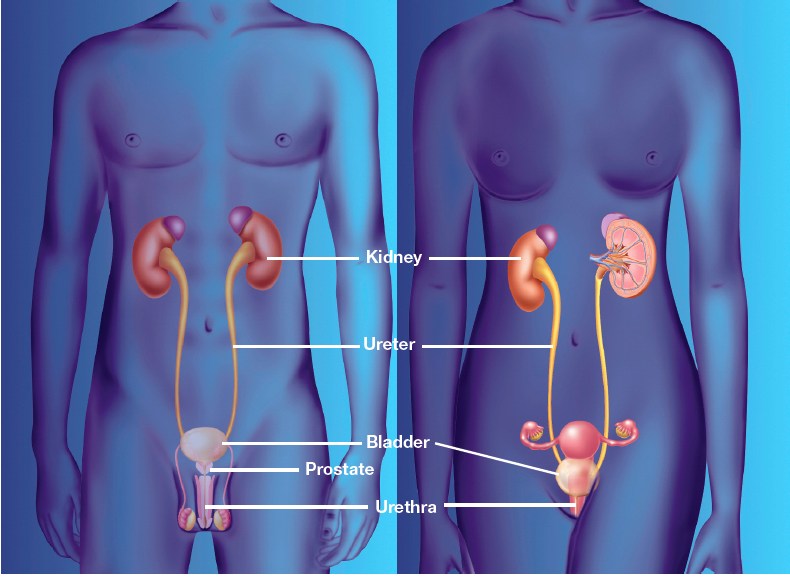What is a urinary tract infection (UTI)?
A urinary tract infection (UTI) is an infection of the urinary system. This type of infection can involve your urethra (a condition called urethritis), kidneys (a condition called pyelonephritis) or bladder, (a condition called cystitis).
Your urine typically doesn’t contain bacteria (germs). Urine is a byproduct of our filtration system—the kidneys. When waste products and excess water is removed from your blood by the kidneys, urine is created. Normally, urine moves through your urinary system without any contamination. However, bacteria can get into the urinary system from outside of the body, causing problems like infection and inflammation. This is a urinary tract infection (UTI).
How Does the Urinary Tract Work?
The role of the urinary tract is to make and store urine. Urine is one of the waste products of your body. Urine is made in the kidneys and travels down the ureters to the bladder. The bladder stores the urine until it is emptied by urinating through the urethra, a tube that connects the bladder to the skin. The opening of the urethra is at the end of the penis in a male and above the vaginal opening in a female.
The kidneys are a pair of fist-sized organs in the back that filter liquid waste from the blood and remove it from the body in the form of urine. Kidneys balance the levels of many chemicals in the body (sodium, potassium, calcium, phosphorous, and others) and check the blood’s acidity. Certain hormones are also made in the kidneys. These hormones help control blood pressure, boost red blood cell production and help make strong bones.
Normal urine has no bacteria in it, and the one-way flow helps prevent infections. Still, bacteria may get into the urine through the urethra and travel up into the bladder.
What are the symptoms of a urinary tract infection?
Urinary tract infections don’t always cause signs and symptoms, but when they do they may include:
- A strong, persistent urge to urinate
- A burning sensation when urinating
- Passing frequent, small amounts of urine
- Urine that appears cloudy
- Urine that appears red, bright pink, or cola-colored — a sign of blood in the urine
- Strong-smelling urine
- Pelvic pain, in women — especially in the center of the pelvis and around the area of the pubic bone
UTIs may be overlooked or mistaken for other conditions in older adults.
How Long Does A UTI Last?
In general, most UTI symptoms go away within 24 to 48 hours after the commencement of treatment. However, in people with kidney problems or infection, this can take up to a week or longer for symptoms to completely go away.
Why do I get UTIs?
Most UTIs are single events that, if treated, will not come back. Some patients have anatomical and genetic predispositions that tend to make getting UTIs more likely.
When should I be worried?
If you are being treated for a UTI and are not getting better, or you have symptoms of a UTI along with an upset stomach and throwing up, or fever and chills, then you should call your health care provider. If you ever see blood in your urine, you should call your health care provider right away.
Will a UTI cause damage to the kidneys?
If the UTI is treated early, then there will likely be no lasting effect on your urinary tract. UTIs can cause harm if not found and treated quickly.
What if I am pregnant?
If you are pregnant and have symptoms of a UTI, then you should call your health care provider right away. UTIs during pregnancy can put both mother and baby at risk if not dealt with quickly and properly.






